May 5, 2015
A Quick Guide to Website Security
If you have a website, you need to secure it. You might think, “Nah, I’m just a small business. I am not on a hacker’s radar.” Not true. Hackers don’t always go for the big fish.
It’s easy to say that you need strong website security, but it’s tough to know how to implement it, especially if you’re a beginner. If you don’t understand the particulars of creating a secure site, find someone who can explain the most important parts to you, and make sure you have a reliable host that can protect your site.
There are some basic things you can do, though, that will start you on your way to making sure your website is as secure as is possible that aren’t hard to understand at all.
Here are four ways to help beef up the security on your web site:
#1: Passwords.
A weak password is the #1 target for hackers. No matter what, make a unique, complex password, preferably one made of characters, numbers, lowercase letters and capital letters.
One big reason why we make up simple passwords is because they are easy to remember. If they’re easy to remember, they are even easier to hack. Try to use a mixture of characters, numbers, lowercase letters, and capital letters. To keep track of your passwords, check out 1Password.
#2: No uploading from visitors.
If you are letting your visitors upload files or images to your site, you are taking a huge risk. It may look innocent enough, but it’s impossible to regulate what is being upload as executable files are easy to disguise. If you need to allow users to upload, trying using third party tools who specialize in file security.
#3: Choose a host who really cares about security.
One of the first things a hacker does is find out what host you’re using. Penetrating your host is what he is most interested in, since once he takes over the host, he has complete control over your site.
Check the security policies and measures that your host implements. Are you using a free host? Dump it. Hackers use free hosts to put malicious files on the site, and then when visitors download something, it can be detrimental to the entire network, to say nothing about what it’ll do to your visitor’s computer.
#4: Does your host perform regular backups and security checks?
Your host should perform backups once a day at a minimum. That way if there is any malicious activity, everything can be restored in a timely fashion. In addition to backups, you should be doing regular security checks to make sure your site has not been compromised. There are many online resources that can help you protect your site and yourself, including Alt Creative’s Proactive Maintenance.
Your visitors need to be able to have faith in you. They need to be able to know that when they come to your site, any information they give you is safe. If you don’t have customers, then you should at least want security for the site itself. And for your peace of mind.
Don’t set yourself up to be someone else’s attack. Secure your site.
